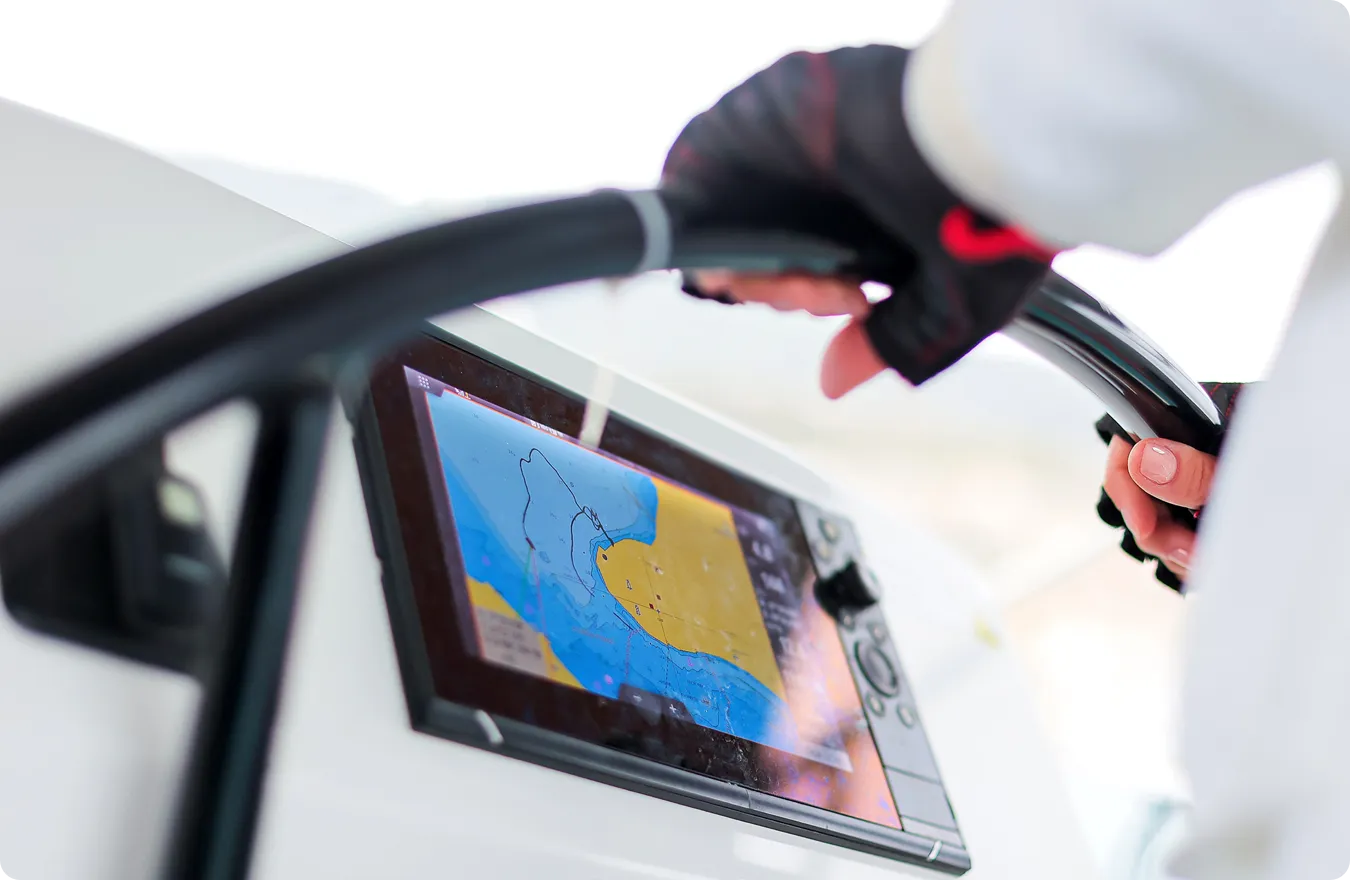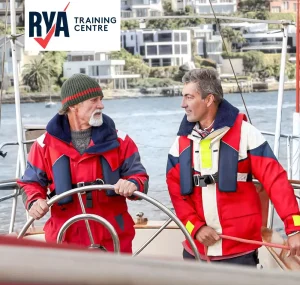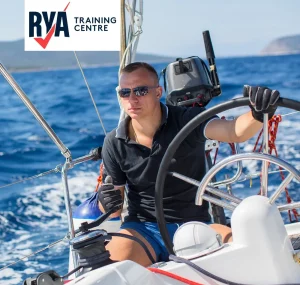Learn how to fix your position at sea using a range of techniques, including GPS, visual bearings, radar, and dead reckoning, and understand the strengths and limitations of each method.

CategoryRYA Cruising Courses / Advanced / Theory

The RYA Coastal Skipper & Yachtmaster Offshore Theory course is an advanced shore-based navigation course designed for experienced sailors. It builds on the RYA Day Skipper Theory and equips participants with the knowledge required for coastal and offshore
passage-making, both by day and night.
Topics include advanced navigation, meteorology, tidal calculations, pilotage, and collision regulations. This course is essential preparation for the Yachtmaster Coastal or Offshore practical exam and is suitable for skippers and crew seeking to deepen their theoretical understanding. The course spans approximately 40–50 hours and is suitable for students aged 16 and above.

Learn how to fix your position at sea using a range of techniques, including GPS, visual bearings, radar, and dead reckoning, and understand the strengths and limitations of each method.

Understand how magnetic variation and deviation affect compass readings, and gain the skills to use a magnetic compass accurately for coastal and offshore navigation.

Explore the causes and characteristics of tides, how to read tide tables, and how to calculate tidal heights and times to plan safe passages.

Learn to interpret tidal stream data from charts and almanacs, and use this information to adjust your course and ensure accurate navigation in moving water.

Gain a solid understanding of the IALA buoyage systems (Regions A and B), including how to identify and interpret lateral and cardinal marks and their limitations as navigational aids.

Learn how to identify lighthouses, navigation buoys, and other vessels at night using their light characteristics, ranges, and positions.

Develop practical techniques for navigating in and out of harbours using soundings, transits, leading lines, and local knowledge to ensure safe entry and exit.

Understand the operation and limitations of GPS and electronic chart plotters, and the importance of using paper charts and backup methods for safe navigation.

Learn how to use depth sounders to determine water depth and seabed characteristics, and understand their role in safe pilotage and anchoring.

Understand how to measure speed through the water and distance travelled using log instruments, and how to apply this data to navigation.

Learn how to maintain an accurate and legally significant deck log, including the correct format for recording positions, weather, and navigational events.

Develop the skills to read weather forecasts, interpret synoptic charts, and understand how weather patterns, wind systems, and fog affect passage planning and safety.

Gain a working knowledge of the International Regulations for Preventing Collisions at Sea (COLREGs) and how to apply them in practical situations.

Understand the essential principles of onboard safety, including life-saving equipment, emergency procedures, firefighting, and preparing for heavy weather.

Learn the precautions and techniques needed to navigate safely in fog and other low-visibility conditions using radar, sound signals, and good seamanship.

Master the process of planning a coastal or offshore voyage, including route plotting, tidal and weather considerations, regulatory compliance, and watch planning.

Understand your responsibilities for protecting the marine environment and learn how to minimise pollution and operate sustainably at sea.
The RYA Coastal Skipper & Yachtmaster Offshore Theory course is a comprehensive and intensive program designed for those looking to advance their navigation and passage planning skills. Whether you’re preparing for the RYA Yachtmaster Coastal or Offshore practical exam, or simply seeking to become a more confident and capable skipper, this course delivers the essential theoretical knowledge needed for safe and effective offshore cruising.
Building upon the fundamentals taught in the Day Skipper Theory course, this advanced course delves deeper into navigation, meteorology, and seamanship. It covers complex tidal calculations, secondary port predictions, estimated position plotting, and advanced chart work. Students will learn how to plan and manage longer coastal and offshore passages, including strategies for night sailing and adverse conditions.
Meteorological training is a key feature of the course, with a strong focus on interpreting weather forecasts, synoptic charts, and understanding weather patterns at sea. The course also includes a thorough review of the International Regulations for Preventing Collisions at Sea (COLREGs), with a particular focus on practical application during watch-keeping and passage planning.
The course is usually delivered over five full days in a classroom environment or spread across evenings and weekends for part-time learners. For those studying online or through distance learning, a commitment of around 40–50 hours is typical. Small class sizes (often 6–12 students) allow for interactive learning, group problem-solving, and personalised instruction from experienced RYA instructors.
This theory course is not just academic—it directly supports real-world sailing. Whether you’re skippering offshore passages, racing overnight legs, or aiming for professional qualifications, the knowledge gained here forms the foundation of safe and confident navigation.
At the end of the course, students complete three assessment papers covering chart work, meteorology, and IRPCS (collision regulations). Successful completion earns an RYA Coastal Skipper/Yachtmaster Theory certificate.
Minimum age is 16, and prior knowledge equivalent to Day Skipper Theory is strongly recommended.
While there is no minimum criteria to do this course it is highly recommended that the day skipper theory be completed first or participants should have a solid foundation in sailing or navigation


Let us know how we can help you, simply fill out the details below.
Please fill out the form below to receive price details
Let us know how we can help you, simply fill out the details below.